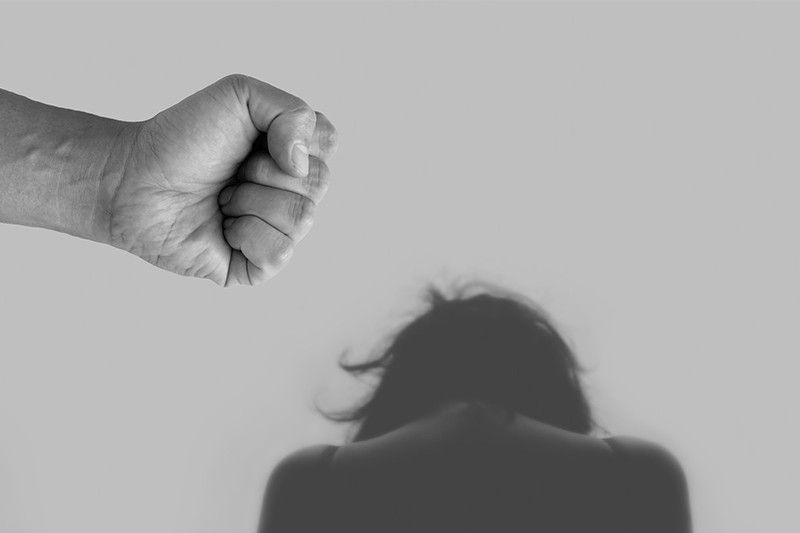Behind closed doors: COVID-19's hidden burden on families and how they cope

MANILA, Philippines — Families expectedly have more on their plate than the coronavirus pandemic.
But even the weight that different households shoulder is unequal, according to policy experts who point to the direction of socio-economic inequalities that prevailed even before.
During the Lee Kuan Yew School of Public Policy's webinar "Too Close for Comfort: Will the Pandemic Make or Break the Family?" earlier this week, Singapore-based researchers discussed their findings on how the domestic landscape has changed in just a few months.
Here's how families and their individual members have been affected by COVID-19, as well as the different ways they've adapted to the health crisis.
Who are at the margins?
Social policy researcher Ng Kok Hoe, who studies social exclusion and marginalization, observed that families under particular demographics faced different complications when it came to the coronavirus outbreak.
-
Migrant workers
These include migrant workers, who we may know better at home as overseas Filipino workers.
“There are in fact many people in our society who do not live with their families, and they face increased risks at these times. We must talk about this because they are large groups, they are not minor exceptions,” the National University of Singapore academic said.
An estimated 1 million work-permit holders have emigrated to Singapore to enter mostly construction and domestic jobs, according to Ng.
They are not allowed to bring their families with them or start families in the city-state.
Housing for them is usually “crowded and unsafe” or living in someone else’s home.
“At these times, they are worrying about personal livelihood and safety, as well as their family’s safety back home.”
Around 200,000 overseas Filipinos are based in Singapore, with millions of others distributed across the world in other countries like the United States and Saudi Arabia, according to Department of Foreign Affairs 2014 data.
-
Homeless people
With everyone being told to “stay at home” by governments and even certain influencers, those without a roof over their heads are also left without a choice.
“During this period of lockdown, public spaces have become inaccessible. And this group already inherently face higher risks because many homeless people are older, they have poor health and nutrition and just because of the challenges of observing hygiene practices.”
Around 4.5 million people do not have any shelter in the Philippines.
Ng said that a local voluntary outreach group had made an “extraordinary public call” for individuals and organizations to open their doors and house the homeless.
Some Philippine universities, establishments and organizations have similarly offered shelter to scores of homeless individuals, but an untold many likely remain exposed to the health crisis by the endemic housing crisis.
“We are suddenly scrambling for space. Of course, that’s partly due to an unprecedented crisis but we have also for a long time been uneasy with housing people who cannot afford to pay.”
-
Low-income families
Lack of quality in affordable housing within the reach of low-income families and individuals has also created unique circumstances in their households.
“For this group, the lack of space has always had an impact on their privacy, on family relationships, on the children’s education, on health...and these effects are more keenly felt now.”
But beyond the absence of a study area for a child or a conference room for Zoom calls, Ng said that households will see changes in family life “because of the new ways we have to share space.”
He noted the psychological impact felt by low-income families under lockdown due to related events like suspension of work or income and the stoppage of social services on which they are heavily dependent.
“As a result, low-income families are facing problems meeting basic needs.”
For breadwinners in service jobs where work-from-home is impossible, the only choice is between having no income or risking themselves and consequently their family to COVID-19 transmission.
Ng mentioned a misconception in public discussions on basic living standards where social factors (participation, respect, security) are usually paid more attention to than tangible factors (food, clothing, shelter) “maybe because we assume the essential material needs have been met in our society.”
“This is not true. Even in normal times, things like housing and food security are a problem for some families. And this crisis should awaken us to the reality that as a society, we have not yet been able to meet everyone’s basic needs.”
How have families been affected?
With all these compounding factors, demographics expert Wei-Jun Jean Yeung listed several manifestations of how lockdown stress plays into households.
“We all know that COVID-19 began as a health pandemic which caused a global economic recession and a near-universal school closure and months of time of lockdown for everyone to stay at home. So what we're seeing here is multiple shocks happening simultaneously,” said the Provost's Chair of the National University of Singapore's Department of Sociology.
“Each one of these shocks by itself could upset the routines, social structure and norms in a society. So when we have multiple shocks together, we can expect our families are significantly impacted.”
Yeung, citing studies, said that most families under times like this will experience major income and job loss, as well as severe illness or death.
“Such events are linked to emotional distress, anxiety, depression, health problems, unstable marriages, mounting tension in the family. So couples have more quarrels and conflicts. Intergenerational relations become more tense. Parents for example could use harsher parenting behavior to children.”
The rise in recorded divorce and domestic violence in many countries is not surprising, Yeung said, “because it always happens” after external shocks like the ongoing crisis.
However, she said that the magnitude and the speed of the rise is notable, with some places reporting doubling of rates in just a matter of months, reflecting “multiple stress points.”
“Having everyone locked down in a confined space surfaces a lot of problems in families, such as money problems, infidelity issues and so on.”
How have they coped?
Families usually resort to the following behavior in response to the COVID-19 situation, according to Yeung.
- Cutting consumption: food, entertainment, health care expenditures, etc.
- Downgrading: moving into cheaper living quarters, boarding with family and friends to save costs, etc.
- Postponing major obligations: house, cars, etc.
- Putting off entering into major life events: getting married, having a baby, etc.
- Finding extra income sources: wives cooking or selling goods, borrow money, sell or pawn belongings, older children dropping out of school prematurely to enter the labor market to compensate for parent’s job loss, etc.
“In short, there are high socioeconomic and psychological costs on the quality of individual and family lives.”
Yeung said that inequality still figures in the family discussion, with shocks registering uneven effects on different households.
Families who coped better usually have:
- Bank savings and wealth
- Religious beliefs
- Strong social networks who can provide various support
- Dependable community, government and public safety nets
On the other hand, families and individual members who struggled the most tend to belong to the following demographics:
- Low education
- Racial minority groups
- Elderly
- Migrant works
- Women (vulnerable to layoffs, higher occupational health hazard, domestic violence, disproportionate and unpaid childcare and housework)
- Youth (higher unemployment rate)
Yeung concluded her presentation by advising families to brace for the short and long-term impacts of COVID-19 alike.
“Research in UK and Germany clearly shows that the graduating cohort during the economic recession still have lower wages five years after the recession. Children who grow up in great depression are more likely to have mental and behavioral problems in adulthood.”
- Latest
- Trending




























